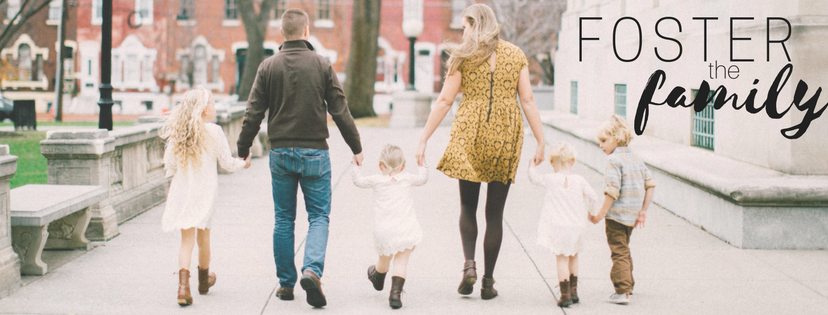I Wish the Term “foster to adopt” Was Abolished
I wish the term “foster to adopt” was abolished.
It’s more than semantics. It’s intention.
How is it possible to be whole-heartedly fighting for & praying for & supporting the healing of a family, if you’re actually really hoping for the family to fail so that the child can be yours forever??
I’ve adopted three children from foster care, so it’s not adoption itself I’m challenging. It’s the motive behind it & the importance of having an accurate understanding of what adoption from foster care actually looks like.
There are three different times adoption happens through foster care:
1 - Fostering a child whose parental rights—after somewhere between 12-48 months in foster care—are terminated or surrendered & they need an adoptive family. This is for parents who are passionate about family preservation & reunification, but also open to welcoming children into their forever family.
2 - Welcoming the pre-adoptive placement of a child who is still in foster care, but whose goal is changed to adoption & parental rights are close to being terminated. This is sometimes called “legal risk adoption,” because, frankly, there is the “risk” that adoption will not happen.
This is for parents who want to adopt and understand that the “risk” involved is almost always the child returning to biological family, which is something to be celebrated. (We had a child whose goal of adoption ended in reunification after 2 1/2 years).
3 - Adopting a waiting child. This is a child, who after years in foster care has had their parental rights terminated and does not yet have an adoptive family committing to forever. They are—as the name implies— waiting. This is for parents who do not feel equipped to say goodbye to a child but feel equipped to walk with a child through their unique needs forever.
Too many foster parents sign on to “foster to adopt” with an intention of building their family rather than protecting, supporting, and fighting for a family that already exists.
This leads to heartbroken, confused, & angry foster parents. More importantly, it leads to foster parents who are missing out on one of the most important parts of foster parenting—supporting reunification.



